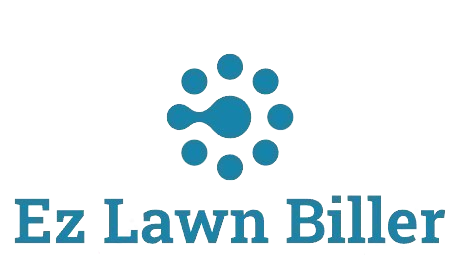Stay Compliant: Tips for Lawn Professionals
Staying compliant is critical for lawn care professionals who want to build a successful and reputable business. Compliance involves understanding and adhering to a myriad of regulations, environmental laws, and industry standards that govern lawn care services. From applying fertilizers to managing waste, every aspect of lawn care can be subject to regulations that vary by location.
In this comprehensive guide, we will delve into the importance of compliance in the lawn care industry and provide actionable tips to help professionals navigate the complexities of local laws and industry standards. We’ll cover essential topics, including safe chemical application, proper waste disposal, labor laws, and effective invoicing practices. Whether you’re a solo operator or managing a larger team, understanding compliance will not only protect your business but also enhance your reputation in the marketplace.
Understanding Local Regulations
The first step in ensuring compliance is understanding the local regulations that govern lawn care in your area. These can include restrictions on pesticide use, fertilizer application rates, and even noise ordinances related to lawn equipment operation. Each state and municipality may have different rules, which makes it essential to stay informed.
For example, certain areas may have bans on specific chemicals that are deemed harmful to the environment. Knowing which products are permitted and the application rates can prevent costly fines and protect your clients’ lawns. Resources such as the Environmental Protection Agency (EPA) and local agriculture departments can provide valuable information.
Additionally, maintaining detailed records of all materials used and services performed helps ensure compliance and can be beneficial if you face an audit. Using comprehensive lawn service software can streamline this process, making it easier to track your operations and ensure adherence to regulations.
Safe Chemical Application
Applying chemicals safely is crucial not only for compliance but also for the health of your clients and the environment. Always read labels and follow the manufacturer’s instructions carefully. This includes wearing appropriate personal protective equipment (PPE) and adhering to recommended application rates.
Furthermore, it’s vital to consider the timing of applications. For instance, applying fertilizers before heavy rain can lead to runoff, which is harmful to aquatic life and may result in fines. Implementing a schedule based on local weather patterns can help mitigate this risk.
Regular training for your team on safe application techniques is also essential. Investing in staff education ensures everyone understands the implications of misapplication and fosters a culture of safety within your business. Utilizing resources like training programs or certification courses can enhance your team’s knowledge.
Proper Waste Disposal
Effective waste disposal is a significant aspect of compliance that many lawn care professionals overlook. From grass clippings to unused chemicals, lawn care businesses generate various waste types that require proper management.
For organic waste, consider implementing a recycling or composting program. This not only reduces the amount of waste sent to landfills but can also provide valuable organic material for future landscaping projects. For chemical containers and hazardous waste, follow local guidelines for disposal to avoid legal penalties.
Using a lawn service app that tracks waste disposal practices can help maintain compliance and ensure your business is following best practices. This not only protects the environment but also enhances your reputation as a responsible service provider.
Labor Laws and Employee Training
Compliance with labor laws is another critical consideration for lawn professionals. This includes understanding wage laws, overtime regulations, and employee rights. Familiarize yourself with both federal and state labor laws to ensure your business practices are lawful.
Providing proper training for employees is essential to keep your team informed about labor rights and safety practices. Regular training sessions can help prevent workplace accidents and ensure everyone knows how to operate equipment safely. This not only protects your employees but also reduces liability for your business.
Additionally, keeping clear documentation of employee hours and pay can prevent disputes and ensure compliance with labor regulations. Utilizing a lawn company computer program can streamline payroll and employee management, making it easier to stay compliant.
Implementing Technology for Compliance
In today’s digital age, technology can play a significant role in maintaining compliance within your lawn care business. Implementing a lawn billing software can help streamline your invoicing process, ensuring that your billing practices adhere to regulations.
Using a service company software also assists in tracking service history, client interactions, and compliance-related data. This centralized information can be invaluable during audits or inspections, as it demonstrates your commitment to maintaining standards.
Moreover, a lawn service app can provide reminders for important compliance dates, such as pesticide renewal certifications, ensuring you never miss critical deadlines. By leveraging technology, you can enhance your operational efficiency while ensuring compliance.
Best Practices for Client Communication
Effective communication with clients is essential for maintaining compliance and building trust. Educate your clients about the services you provide, including any chemicals used and their potential impacts. Providing this information can help clients feel more comfortable with your practices.
Additionally, consider providing reports on the services performed and any products used, especially if they are chemical-based. This transparency fosters trust and reassures clients that you are following best practices.
Incorporating feedback from clients can also enhance compliance. Conducting surveys or soliciting reviews can provide insights into areas for improvement, ensuring your services meet client expectations while adhering to regulations.
Keeping Up with Changes in Regulation
The regulatory landscape can change frequently, and it’s essential to stay informed about any updates that may impact your lawn care business. Subscribing to industry newsletters, joining local trade associations, or following relevant social media groups can provide valuable insights into regulatory changes.
Engaging in continuing education opportunities, such as workshops or webinars, can also help keep your knowledge current. This proactive approach not only ensures compliance but also positions your business as a leader in the industry.
Regularly reviewing your business practices in light of regulatory changes helps you adapt quickly and maintain compliance. This agility can set you apart from competitors who may not be as diligent.
Creating a Compliance Checklist
To make compliance more manageable, consider creating a compliance checklist tailored to your lawn care business. This list should include all essential regulations and best practices relevant to your operations.
Your checklist might include items like verifying chemical application rates, ensuring proper waste disposal methods, and confirming employee training completion. Regularly reviewing and updating this checklist will help you stay organized and compliant.
Incorporating compliance into your daily operations promotes a culture of accountability within your team. It shows that you value adherence to regulations, which can enhance your reputation in the industry.
Conclusion
Maintaining compliance is a vital aspect of running a successful lawn care business. By understanding local regulations, implementing safe chemical practices, managing waste responsibly, and adhering to labor laws, you can build a credible and reputable operation.
Additionally, leveraging technology such as lawn billing software and service company software can simplify your compliance efforts and enhance your operational efficiency. Remember, effective communication with clients and staying informed about regulatory changes is essential for long-term success.
As you move forward, consider these tips as a foundation for compliance and best practices in your lawn care business. By prioritizing compliance, you not only protect your business but also contribute positively to the environment and community. Don’t hesitate to take the next step towards securing your business’s future by exploring solutions like [Lawn Biller Software](https://ezlawnbiller.com/) for efficient management.




